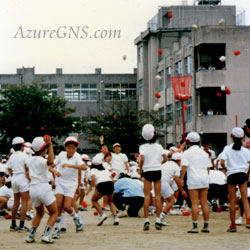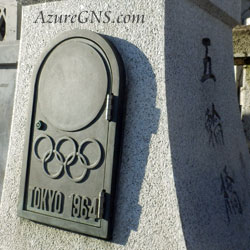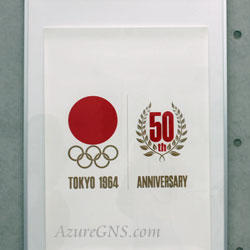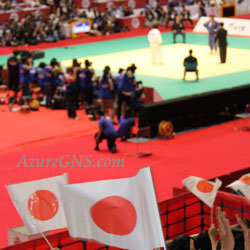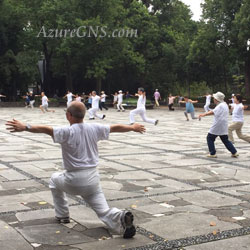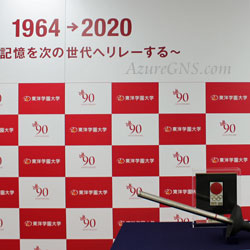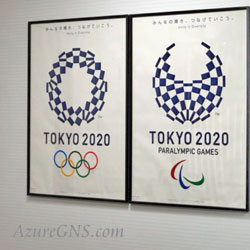国民の祝日
(10月の第2月曜日)
National Holiday
Taiiku-no-hi
Sports Day
(the Second Monday of October)
●体育の日 Taiiku-no-hi; Sports Day; Health and Sports Day
●スポーツ sports
●見るスポーツ spectator sports
●参加するスポーツ participation sports
●オリンピック the Olympic Games; the Olympics; the Olympiad
●開催する (to) hold
●記念する (to) commemorate
●観客 spectators; attendance; gallery
●応援 cheering
●応援する (to) cheer
●運動会 sports meet; sports meeting; sports event;
athletic meet; athletic meeting
●綱引き tug of war; tug-of-war; tug-o-war; tug o’ war
●玉入れ ball-toss game
●組体操 group gymnastics; human pyramid
●リレー競争 relay race
◆1966年(昭和41年)に10月10日は国民の休日、体育の日と制定されました。
In 1966 (Showa 41st yr), October 10 was designated as Taiiku-no-hi (Sports Day), a national holiday.
◆この祝日はアジアで開催された初めてのオリンピックの開会日を記念するものです。
This holiday commemorates the opening day of the first Olympics held in Asia.
◆東京オリンピックは1964年(昭和39年)10月10日に始まりました。
The Tokyo Olympic Games opened on October 10th, 1964 (Showa 39th yr).
◆東京でオリンピックを開催することは、日本はもはや戦後ではなくなり、新しい時代が到来したことを意味しました。
Having the Olympic Games in Tokyo meant that it was no longer “the postwar years,” but, “the dawn of the new age” in Japan.
◆国は東京オリンピックに向け、多くの体育施設だけでなく、東海道新幹線、モノレール、地下鉄、高速道路なども建設しました。
The government had many sports facilities built for the Tokyo Olympic Games and also had the Tokaido Shinkansen (bullet train), monorails, subways and freeways built.
◆国内外からの訪問者のために、多くの宿泊施設やレストランが建てられました。
Many accommodations and restaurants were built for visitors from within the country and abroad.
◆多く人々はオリンピックを観戦するために、当時はまだ日本ではあまり普及していなかったテレビを購入しました。
Many people bought televisions which were not so common in Japan in those days so that they could watch the Olympics.
◆日本はこの頃から高度成長時代に入り、豊かな国になっていきました。
At that time, the Japanese economy began to grow rapidly, and Japan became a wealthy country.
◆東京オリンピックの成功は経済効果をもたらしただけではなく、日本人に自信を回復させました。
The success of the Tokyo Olympics brought to Japan not only economic growth, but also a revival of confidence.
◆バレーボール、重量挙げ、柔道、レスリングで金メダルを獲得して、第2次世界大戦に敗れて打ちひしがれていた日本人を力づけました。
Gold medals won in volleyball, weight lifting, judo and wrestling encouraged the Japanese people, who were dejected after the defeat of World War ll.
◆しかし2000年(平成12年)に「ハッピーマンデー」と呼ばれる新しい法律により、体育の日は10月の第2月曜日に変更されました。
In 2000 (Heisei 12th yr), however, according to a new law called “Happy Monday”, Taiiku-no-hi was moved to the second Monday of October.
◆体育の日は、日本の国民全ての生活にスポーツを取り入れることを奨励するために設けられました。
Taiiku-no-hi was established to encourage all Japanese to incorporate sports into their lives.
◆体育の日の趣旨は「スポーツにしたしみ、健康な心身をつちかう」ということです。
The purpose of Taiiku-no-hi is “to enjoy sports and raise a sound mind and body.”
◆この日の前後に、幼稚園や学校で運動会が開催されます。
On or around this day, athletic meets are held at kindergartens and schools.
◆一般的に生徒は白組と赤組の2チームに分かれ、リレー競争、綱引き、玉入れなどの競技をします。
Students are generally separated into two teams: red and white, and two teams compete in some games including a relay race, tug-of-war and a ball-toss game.
◆運動会では組体操、ダンス、マスゲームのようなパフォーマンスが行われたりします。
Besides, some events such as group gymnastics, dance or mass games are performed in athletic meets.
◆地域や会社では、スポーツフェスティバル、スポーツ教室、体力測定などを行い、普段運動不足の人が健康のために適度な運動を取り入れるように奨励します。
In communities and companies, sports festivals, sports lessons and physical fitness tests are organized, and moderate exercise is encouraged to be taken for the health of people who don’t get enough exercise in their daily life.
(より詳しい情報は「我が家の体育の日」をご覧下さい。)
(Please see “Our Sports Day Experience” for further information.)
Copyright (C) Azure Global Network Services. All Rights Reserved.
